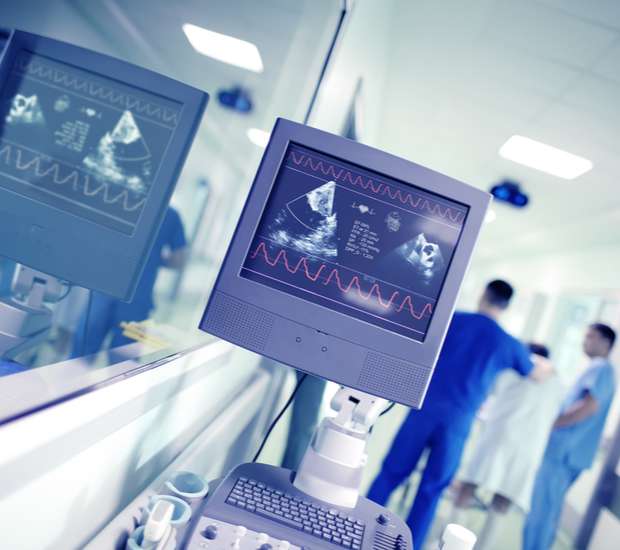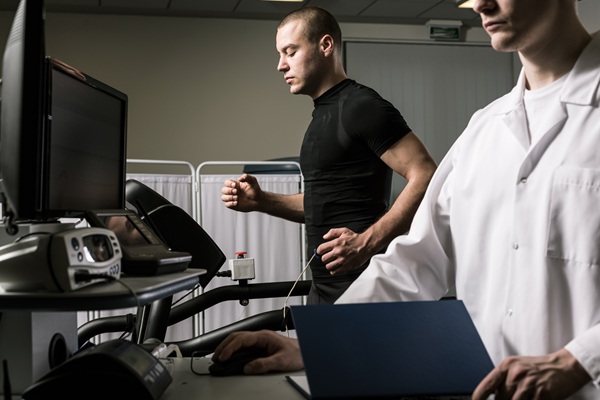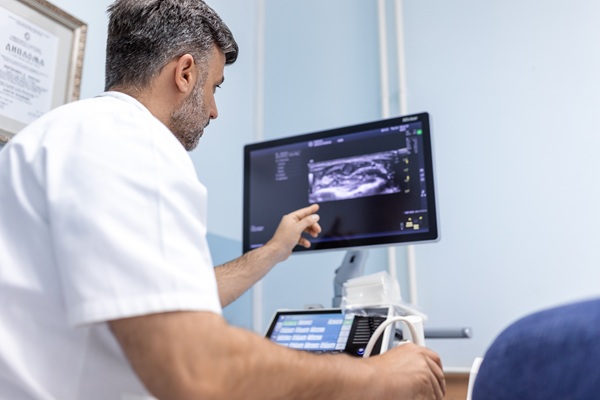EchocardiogramBoynton Beach, FL
To treat conditions that affect the heart and hinder its ability to function correctly, we need to get as detailed of a view of the heart as possible. In these situations, we will use an echocardiogram. Unlike an X-ray, an echocardiogram uses high-frequency sound waves, also known as an ultrasound. An echocardiogram is an ultrasound test to take pictures of a patient's heart to monitor the heart's condition closely.
An echocardiogram is available at Florida Premier Cardiology in Boynton Beach and the surrounding area. The echo is a recommended procedure for patients of all ages. It can give a detailed depiction of how your heart is currently functioning. It can also show whether anything is in the region that should not be, such as excess fluid, clots or masses.
Do not put your heart health on the backburner, call us at 561-229-1411 to learn more about an echocardiogram or schedule an appointment today.
Benefits of an Echocardiogram
The echocardiogram allows a cardiologist to diagnose problems and help determine what would be the most effective path for proper treatment. If there is a specific issue to focus on, the echo can show whether changes have occurred and whether steps taken for treatment have resulted in any level of improvement. It can also indicate if an issue warrants further tests.
The results can be very detailed in what the echocardiogram tells a cardiologist. It can evaluate functions, pinpoint damage, deterioration and detect problems. Here are some of the vital pieces of information a professional can garner from an echocardiogram:
- An assessment of whether the heart valves are failing to open and close in a proper manner
- The extent of any deterioration of heart valves over time
- Damage that may have occurred from a heart attack
- Weak contractions of the heart walls that assist in pumping
- A weakening of the heart that is due to lack of oxygen or proper blood supply
- Presence of any blood clots, fluid, masses or tumors
- Enlargement of the heart, changes to its size or thickening of the walls due to problems such as leaky heart valves or elevated blood pressure
- Increased thickness in the ventricles
- Structural issues, such as holes in the heart and other congenital heart defects
- Pumping strength and rate of the heart to support the body’s functions and meet all its needs
The echo can give the cardiologist important information in a timely fashion. The physician can eliminate variables and determine a precise diagnosis. A treatment plan can then be created specifically for your individual needs.
Indications for an Echocardiogram
If you are at risk for specific cardio-related health issues, then Dr. Rodolfo Carrillo-Jimenez, MD, FACC may consider using an echocardiogram to check the current state of your heart. However, certain symptoms are considered red flags and may lead a doctor to seek an echo test. If we hear abnormal or irregular sounds during your heartbeat or an indication of a heart murmur, this may indicate the need to investigate further.
We may also need to establish whether this is problematic and requires further testing. Chest pains can be indicative of an array of medical problems, so an echo is extremely helpful in identifying whether they are due to pulmonary causes.
Symptoms such as swelling in the extremities, chronic fatigue or shortness of breath may be potential signs of heart failure. If you are exhibiting any of these symptoms, we may use an echo to see whether heart failure is the cause or to rule it out before pursuing other treatment options.
How an Echocardiogram Works
An echo test is an outpatient procedure and can be performed either in the doctor’s office or at the hospital. The test often takes less than an hour. Most patients can usually eat beforehand, as well as take your regular medications before the test. There should be little to no discomfort other than the possible coolness felt with the gel that we place on the body.
You will lie on your back or side and electrodes (sticky patches) will be attached to your chest, which will deliver information to the electrocardiogram machine or EKG. The gel is applied to your chest to help conduct sound waves. The ultrasound technician moves a device called a transducer over your chest. The instrument transmits the ultrasound waves, helping collect information about your heart. This information is sent to a screen to record it for review.
We will review the results and go over any concerns we notice. From there, our team will customize the treatment to the individual needs of the patient. Dr. Rodolfo Carrillo-Jimenez, MD, FACC will guide you through the treatment process and help you begin the path toward healing.
Call Us Today
If you have any questions or concerns, call us at 561-229-1411 today for an appointment to see whether an echocardiogram can provide beneficial information for you and your heart health.
Contact Us
Florida Premier Cardiology is located at
10151 Enterprise Center Blvd Suite 103
Boynton Beach, FL
33437





